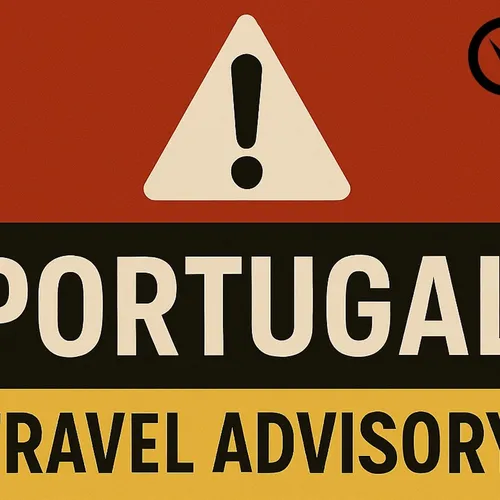Portugal Travel 2025: Your Essential Safety Guide with Top Tips for Secure and Enjoyable Exploration
- Author
- Quiet. Please
- Published
- Fri 18 Apr 2025
- Episode Link
- https://www.spreaker.com/episode/portugal-travel-2025-your-essential-safety-guide-with-top-tips-for-secure-and-enjoyable-exploration--65623229
Listeners considering travel to Portugal as of April 18, 2025, should be aware that both the United States Department of State and the Australian Government currently advise exercising normal safety precautions when visiting the country. Portugal is classified as a Level 1 destination by the U.S. State Department, meaning travelers are advised to "exercise normal precautions" with no elevated warnings or alerts. Similarly, the Australian Government has reviewed and maintained its guidance, recommending normal safety precautions with no specific threats highlighted.
Travelers do not require a visa for tourist or short business stays under 90 days, simplifying entry into Portugal according to the U.S. Embassy in Lisbon. Portugal is widely regarded as a safe destination, with low crime rates and a welcoming atmosphere. Popular destinations such as Lisbon, Porto, Cascais, Sintra, the Azores, and Madeira are consistently mentioned among the safest areas, and historic cities like Braga, Aveiro, and Coimbra are also known for their security.
However, travelers should remain vigilant, particularly regarding petty crime. According to Canadian government travel advice, pickpocketing and bag snatching can occur in busy public spaces, tourist attractions, restaurants, beaches, and especially on certain tram lines in Lisbon like trams 15, 25, and 28. It is recommended to keep personal belongings secured, avoid showing valuables, limit the amount of cash carried, and refrain from walking alone after dark. Vehicle break-ins are also a concern, so valuables should never be left unattended in vehicles, and rental cars should be parked in secure areas.
Violent crime is rare but not unheard of. Incidents such as home burglaries and assaults have occurred in larger cities and tourist-heavy locations, and travelers are advised to stay in accommodations with adequate security and be attentive in bars and nightclubs, especially in Lisbon, Porto, and the Algarve.
Health risks in Portugal are minimal for most travelers. The Centers for Disease Control and Prevention suggests ensuring routine vaccinations are up to date before departure. Food and water standards are generally high, but travelers engaging in outdoor or rural activities should take precautions, such as drinking treated water and avoiding bug bites which can spread diseases.
When driving, international visitors should carry the proper documentation, ideally an International Driving Permit along with their national license, follow all local traffic laws, and ensure they have the appropriate insurance. Extra caution is advised when driving in rural areas or during nighttime.
No major travel disruptions, civil unrest, or significant weather-related concerns have been reported in recent weeks, and Portugal remains an attractive and safe destination for international visitors. Listeners should check for the latest updates before departure and practice the same common-sense precautions they would at home to ensure a trouble-free trip.
